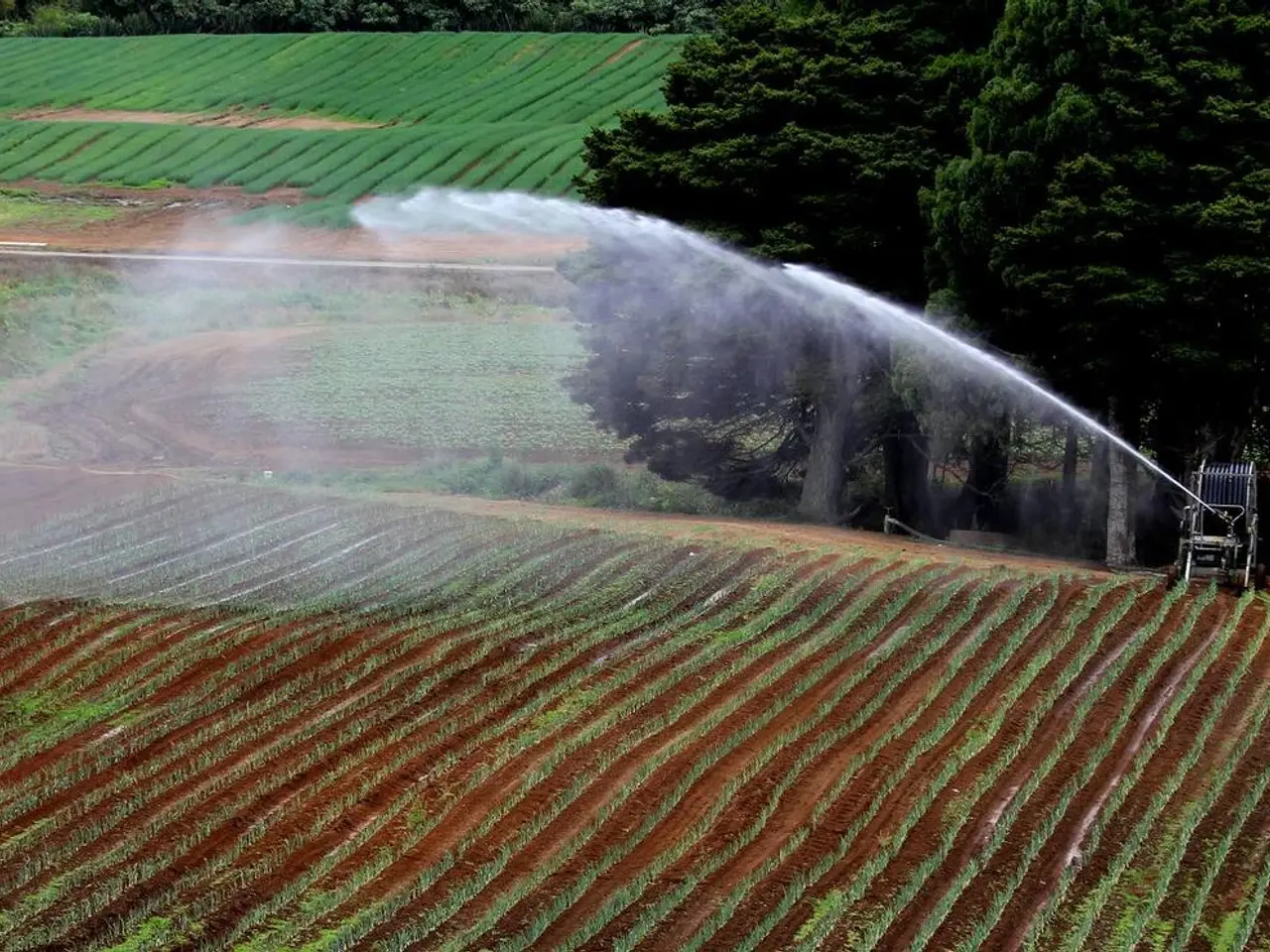Government urged to alleviate regulatory impasse in biostimulant industry: Small businesses, startups grappling with critical situation during Kharif season
India's Biostimulant Industry Faces Regulatory Crisis
India's biostimulant industry, valued at Rs 1,500 crore, is currently grappling with a regulatory crisis, causing potential losses of up to Rs 4,000 crore during the Kharif season [1][4]. The crisis stems from the expiry of G3 product certifications without a clear pathway for renewal or continued sale, despite companies meeting all regulatory requirements [1].
Historically, biostimulants were not distinctly classified under Indian agrochemical regulations. However, a 2021 amendment to the Fertiliser Control Order (FCO) officially recognized biostimulants as a separate category subject to registration, toxicity testing, efficacy proof, and labeling standards [2]. Despite these frameworks, the current lapse in certification renewals and the absence of clear regulatory procedures have frozen market activity [1].
The government has recently emphasized the need for scientific approval before permitting biostimulant sales, following farmer complaints about ineffective products [3]. To resolve the crisis, industry representatives—led by the Biological Agri Solutions Industry Association (BASAI)—urge the government to:
- Provide a clear, streamlined regulatory pathway for timely renewal of biostimulant certifications.
- Enable companies, including startups and SMEs, to legally market their products post-approval expiry based on validated data.
- Support the sector to ensure India can lead the biostimulant revolution aligned with national goals like Natural Farming and Carbon Neutrality.
- Act swiftly and decisively to prevent economic losses, reduce import dependence, and empower farmers [1][4].
BASAI also suggests a fast-track pathway for products with validated dossiers, particularly those evaluated at ICAR and state agricultural universities [1]. Biostimulants are frontline tools in climate-resilient agriculture, helping plants withstand drought, salinity, extreme temperatures, and other climate-induced stresses [6].
The global biostimulant market is currently valued at USD 4.5 billion, projected to reach USD 8.9 billion by 2030 with a CAGR of over 11% [7]. Over INR 1,200 crore in VC/PE investments have flowed into India's biological agri-solutions sector in the past 5 years [8]. India, with a larger agricultural base, risks falling behind without similar regulatory agility compared to Brazil [3].
Brazil has emerged as a global leader in biostimulant adoption with regulatory approval within 60-180 days, versus India's multi-year uncertainty [6]. BASAI is urging the government to adopt a three-tier solution for biostimulant regulation, including a Section 20A approval pathway under FCO for defined biostimulant categories and issuance of general specifications for key molecules [3].
The Biological Agri Solutions Industry Association represents India's leading biostimulant manufacturers, startups, SMEs, and innovators [2]. The long-term regulatory framework proposed by BASAI includes these provisions, aiming to streamline the approval process and support India's growth in the global biostimulant market [3].
References:
- The Hindu BusinessLine
- India Brand Equity Foundation
- The Economic Times
- Financial Express
- The Times of India
- The Indian Express
- MarketsandMarkets
- YourStory
The regulatory crisis in India's biostimulant industry, worth Rs 1,500 crore, has resulted in potential losses of up to Rs 4,000 crore during the Kharif season, highlighting the need for a swift resolution. In the pursuit of a clear and streamlined regulatory pathway, industry leaders are advocating for technology-driven solutions that can help expedite the renewal of biostimulant certifications.
As renounced countries like Brazil continue to innovate in the sports of biostimulant adoption, technology plays a crucial role in enhancing the efficiency and sustainability of agriculture, thus fostering a lifestyle that prioritizes climate-resilient farming practices.




